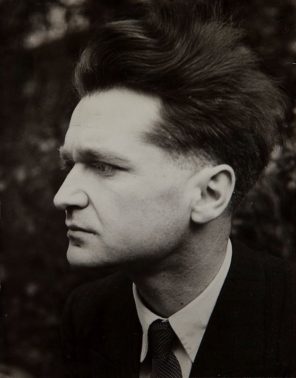
He was a philosopher, essayist, and former Nazi sympathizer (or “Hitlerist” as he once called himself before he switched loyalties).
Google “Emil Cioran” and aphorisms will burst forth. Here’s one: “Insomnia is the only form of heroism compatible with the bed.”
Another: “If anyone owes everything to Bach, it’s God. Without Bach, God would be a third-rate character.”
His outlook was bleak—even boundlessly so—but Cioran’s pessimism is oddly not disturbing; it’s comforting. He’s like a sitcom sidekick, full of neuroses and odd schemes (albeit, one who liked Hitler). He spoke of the “the inconvenience of existence” and even wrote a book called The Trouble With Being Born, but read him for the same reason you might drink whiskey neat: to brace yourself awaken your senses.
“One of the biggest paradoxes of our world: memories vanish when we want to remember, but fix themselves permanently in the mind when we want to forget.”
Arguably, Cioran was the successor to Friedrich Nietzsche (but without Nietzsche’s sense of action and no equivalent epiphany at Sils-Maria—such revelations would perhaps have involved too much hope). He is what perhaps Nietzsche would have become, had he not succumbed to insanity.
Cioran on insanity: “The premonition of madness is complicated by the fear of lucidity in madness, the fear of the moments of return and reunion when the intuition of disaster is so painful that it almost provokes a greater madness… One would welcome chaos if one were not afraid of lights in it.”
Cioran could have lasted at least a few rounds against Nietzsche in a toe-toe aphorism battle.
As an accomplished insomniac (Cioran once claimed to have not slept for fifty years) he’s also worth reading on those late nights.
Sleep on this one: “In every man sleeps a prophet, and when he wakes there is a little more evil in the world.”